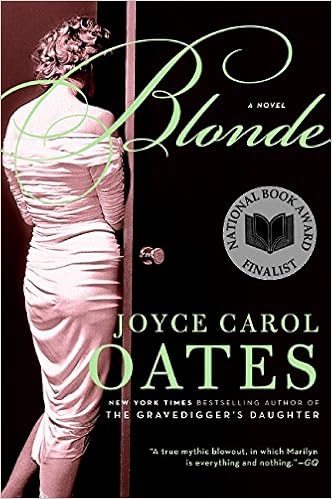It's curious to me why someone would write a book like Blonde by Joyce Carol Oates—fiction, altering the facts of history on a real person who already led such a storied life. While reading this book, I often thought that I would prefer to read the real facts rather than getting led astray by Oates. I love the author's Marilyn and I'd like the real woman to have been as she is described, but I can't be sure due to the nature of this work and that bothers me, a bit. Still, remembering the surprise I felt when I first experienced her films (she's not a sexpot bimbo, she plays a woman, believably, and sparkling with life), I can believe that she was something along the lines of the intelligent, sweet, genuine person that's characterized here.
This excerpt, which I love, sort of reflects real life vs the facade of entertainment, which I find relevant—though not exactly matching my point. Mainly, I just wanted to share it/write it down and was trying to figure out a way to work that in:
"The playwright would think how, in a play, such an accusation would have a ring of truth to it. Even as the accusation was strenuously denied, the audience would understand. Yes, it's so.
Yet in actual life the strategies of drama were not applicable. In the extremities of emotion, terrible things were said that were not true and were not meant to be true, only just the expression of hurt, anger, confusion, fear; fleeting emotions, not obdurate truths. (p 578)"
Google taught me that Marilyn did in fact write poetry, but it's not clear to me whether it was actually her words incorporated into the pages or whether those were Oates' interpretations. They were sensitive, well-written pieces, which leads me to believe they are fictionalized, but I wish that weren't so.
Anyway, the final page was beautiful and I'm getting a kick out of being introduced to female writers I've never read before. I think I'll keep up with that trend for now.

No comments:
Post a Comment